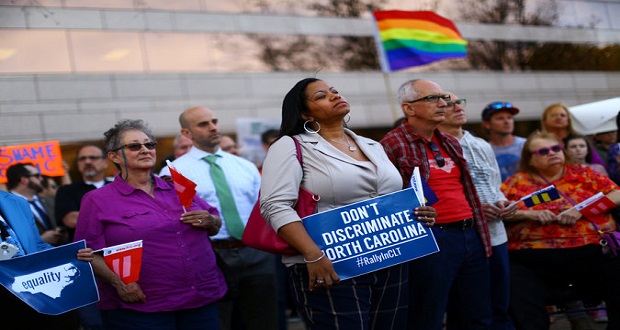
Over the last several decades, colleges and universities have invested in providing the support, education, and resources to address the distinct challenges first-generation students face when attending their universities. The programs include but aren’t limited to early move-in, structured studying and academic support services, and deliberate social events for networking and building connections. However, what happens after college?
While employers have made strides in addressing the needs of other underserved communities, they’ve failed to employ inclusion strategies that acknowledge and support the first-gen experience. First-generation professionals face distinct challenges from career roadmapping and financial planning, to navigating performance evaluations with imposter syndrome, and inter-team dynamics.
While employers have made strides in addressing needs of other underserved communities, they’ve failed to employ inclusion strategies that acknowledge and support the first-gen experience. Click To TweetEmployers can lean into the intersectionality of the first-gen experience to support the needs of all their people. An inclusion strategy that focuses on addressing the needs of first-gen talent is one that can perforate across a multitude of communities in a unique way that has often been excluded from mainstream conversations about DEI in the workplace. Here are a few key tactical strategies companies can fold into their DEI initiatives to positively impact the first-generation employee experience while also contributing to driving inclusion for all employees.
Here are a few key tactical strategies companies can fold into their DEI initiatives to positively impact the first-generation employee experience. Click To TweetCulture On-boarding
First-generation professionals often don’t have the advantage of parents who’ve navigated similar industries to teach them about corporate “norms.” As a result, they spend far too much time trying to grasp a status quo that is not only unfamiliar, but in some cases even uncomfortable depending on their backgrounds. Office politics are a completely different ballgame when you have no context, and it would be unrealistic to suggest that developing a proficiency in office politics doesn’t positively impact one’s career. That is why it is so important for companies to prioritize building a comprehensive culture on-boarding program to help decode the unwritten rules and help employees more easily adapt to corporate dynamics.
First-gen professionals don’t have the advantage of parents to teach them about corporate 'norms.' It is important for companies to build a comprehensive culture on-boarding program to help decode the unwritten rules. Click To TweetHow is culture defined in your company? What expectations have been set explicitly or implicitly about employee behaviors? Consider this: it isn’t always what you show and talk about but also what you don’t show or don’t talk about that sends a broader message. In order to ensure success for first-generation and continuing generation employees alike, companies should take a strategic approach to teaching their cultural standards and norms.
Whether it’s a formal culture code like Netflix, (a culture manifesto published in 2009 that effectively communicates the company’s values and their expectations for how all employees should collaborate) or something instructor-led, you should build out a cohesive and clear version of culture training at your organization. Does it make sense to provide any guidance on dress codes for your organization? Highlight things like commonly used terms, language, or acronyms. Also, explain any social norms and expectations such as ‘coffee chats’ and ‘happy hours.’ It’s best to not assume that people know what’s commonplace. If there’s something you feel employees should know, then train them on it or provide sufficient resources for self-guided learning.
Strategic Professional Development
With few to no “inherited” professional relationships, first-gen professionals often must be particularly intentional about how they acquire valuable work skills. Strategic professional development programs, classes, services, and support can help bridge some of that gap and significantly impact the success of first-gen professionals. Strategically building both hard and soft skills can transform the trajectory of first-gen professionals in your organization. Hard skills are measurable and teachable skills like excel, data visualization tools or other software training. Soft skills are the traits that make an employee the ideal candidate for any position—things like communication skills, emotional intelligence, and leadership skills.
First-gen professionals must be intentional about how they acquire valuable work skills. Professional development programs can bridge some of that gap and impact the success of first-gen professionals. Click To Tweet
For example, in the consulting industry sometimes networking is a critical component to securing particular engagements, getting on particular projects, or influencing promotions. If that is a standard in your company, then there should be a critical focus on networking best practices. Employers shouldn’t limit development programs to technical skills alone. Developing training programs that are aligned to the work dynamics in the culture of your organization will ultimately benefit individuals and business. If self-reviews are a critical component of your performance review process, then a self-advocacy offering should be added for employees to lean into and take advantage of. Despite having the same credentials as a more privileged colleague, many first-generation professionals can still suffer from imposter syndrome. A “How to Write Effective Self Reviews” session can empower first-gen professionals to effectively advocate for themselves.
Financial Wellness and Empowerment
A survey by Voya Financial, Inc. found that 35% of employees do not fully understand their benefits. And as younger generations like millennials and Gen-Zers become the majority among employee populations, it becomes increasingly important to prioritize benefits education. Companies need to do a better job at providing ongoing support to help employees make more empowered decisions about their healthcare and financial wellness.
Adding a cohesive benefits overview to your new hire orientation that reviews both medical as well as financial benefits can help your employees better prepare for their futures. We often encourage employees to save for retirement but don’t provide in-depth education and resources for investing in 401Ks. There is also a significant gap in the understanding of Restricted Stock Units as a part of total compensation and almost no conversation about the importance of life insurance.
Beyond the standard packages, there are also many additional financial benefits that employers can offer to help prepare employees for their futures. There are saving plans, tuition reimbursement, student loan payment, and employee assistance programs (EAP). Offering special benefits in addition to the standard offerings can truly drive meaningful change for those who are starting from a socioeconomic disadvantage, like many first-gen professionals.
If employers invested in building financial literacy in employees, imagine the impact it could have on not only individual employees, but broader society. We must shift the belief that financial wellness is not an employer’s responsibility. Companies should be taking stock in improving their employees’ financial wellness in the same way that they do physical, and more recently, mental health.
If employers invested in building financial literacy in employees, imagine the impact on individual employees and broader society. We must shift the belief that financial wellness is not an employer’s responsibility. Click To TweetConflict Resolution and Team Building
By now, the research citing the benefits of diversity is indisputable. However, if employers aren’t intentional about acknowledging differences and creating resources to leverage them effectively, it can result in conflict. That is why it is so critical for companies to take a proactive approach to promoting inclusive collaboration.
If employers aren’t intentional about acknowledging differences and creating resources to leverage them effectively, it can result in conflict. Companies need to take a proactive approach to inclusive collaboration. Click To TweetKey questions for employers to consider include: do you provide resources for effective team-building that increases psychological safety among teams, and do you have any explicit guidance around expectations for conflict resolution and inclusive collaboration? Addressing these questions can help mitigate risk, reduce complaints to HR, and foster a more collaborative culture overall. First-gen professionals in addition to continuing-generation professionals in the workplace all come with unique backgrounds, influences, styles, and defining experiences. Therefore, equipping employees with the tools and support to collaborate inclusively is incredibly important.
Why Now?
In this new day of the more empowered and enlightened employee, companies have to find effective engagement strategies that resonate across communities to retain top talent. According to a 2017 study by the Center for First-Generation Student Success, 56% of students identified as first-gen. An inclusion strategy that addresses the needs of first-gen talent is one that can resonate across differences in a distinct way that has been excluded from mainstream conversations about DEI in the workplace. The first-gen experience is an intersectional one that can bring seemingly “different” people together and help foster broader awareness and understanding. A person can be of any race, gender, or religion while also being a first-gen professional. Leveraging the intersectionality of that experience will not only impact one community, but many, and elevate DEI successes overall.
An inclusion strategy that addresses the needs of first-gen talent is one that can resonate across differences in a distinct way that has been excluded from mainstream conversations about DEI in the workplace. Click To Tweet


















